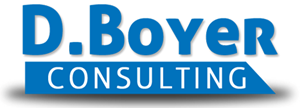Business is mostly conducted via email or phone communications.
Office hours 10:00 a.m. to 6:00 p.m, Mon. - Thurs., and 10:00 a.m. to 2:00 p.m. on Fridays.
SEND EMAIL INQUIRIES DIRECTLY TO:
Dawn.Boyer@me.com
Business is mostly conducted via email or phone communications.
Office hours 10:00 a.m. to 6:00 p.m, Mon. - Thurs., and 10:00 a.m. to 2:00 p.m. on Fridays.
SEND EMAIL INQUIRIES DIRECTLY TO:
Dawn.Boyer@me.com
Business is mostly conducted via email or phone communications.
Office hours 10:00 a.m. to 6:00 p.m, Mon. - Thurs., and 10:00 a.m. to 2:00 p.m. on Fridays.
SEND EMAIL INQUIRIES DIRECTLY TO:
Dawn.Boyer@me.com
Words to delete from your resume
November 15th, 2011 by Dawn Boyer
One of the small mistakes I often see on resumes by inexperienced job seekers are unnecessary words and phrases taking up vital white space, which forces the resume owners to try to squeeze more into their allotted number of pages.
Starting at the top of the resume, I see writers ‘label’ the information, e.g., “Cell Phone,” “Home Phone,” “Business Phone,” or “e-mail.” What phone number is listed is irrelevant to the recruiter as long as they can reach you. Everyone already knows what an e-mail is – why is it necessary to label it?
The Objective is also a short, very concise job title for which you are seeking a position – not a long conversation. Objective statements should be one line and no more than a few words to describe, either concisely or direct general terms, what you want to be (when you grow up) or what type of job you are seeking.
Other words easily deleted from a resume are “the” and “that.” Readers will subconsciously re-add those words in their mind as they read. Another constricting word is “all.” You were responsible for a set of complete tasks, but using the word “all” is not going to add value to that task description. Review the resume for clichés, e.g., “in order to” or “as needed” are filler words and not necessary.
Resumes need to be written in sentence fragments with a bulletized format to keep the information concise. You are not writing an essay for your high school English teacher, so complete sentences are not critical, and periods at the end or unnecessary. Do remove superfluous words or descriptions you can discuss better and in more depth in the interview.
Another type of wording that should be removed is subjective language. “I performed excellently at XYZ task,” is an opinion – yours. It doesn’t prove your performance level. The best advice for resume writers, is “show, don’t tell.” For instance, “I served 50 customers hourly, in a seven-hour shift, five days a week with zero complaints for a total of five years.” The number of complaints (zero) demonstrates the level of performance, while the performance numbers proves capability and skills, and the years of service shows job stability. The job seeker has shown how they performed versus telling they did the job well.
The Internet provides great tips on other useless words: energetic, driven, effective, excellent, exceptional, good, motivated, outstanding, seasoned, and strong are some examples. The word ‘use’ is just as effective as ‘utilize.’ When you ‘impact’ something, how did you do so? If you ‘assist,’ ‘contribute,’ or ‘support’ a task, you need further explanation, so why not simply start with the task you are initially describing. Success has many levels. If you use the word ‘success’ in your resume, you need to define it by describing goals reached. Avoid adjectives that makes resume seem flowery and overly subjective to the reader.
Power words examples that grab recruiters and hiring managers’ attention are: accomplished, created, developed, improved, increased, on-time, managed, supervised, reduced, researched, under budget, and won – because these words define how goals and objectives were reached by qualified candidates. You want to start every bullet under your sub-header for employer with an action verb: managed, supervised, completed, monitored, and created are some samples.
Your resume is supposed to be an unbiased report of your most important knowledge, skills, and abilities with clear and objective statements. If you can’t prove you accomplished a task, objective, or reached a goal in performing your responsibilities in a job, then don’t write about it. If you can describe concisely what you achieved, then provide documented facts your current or past employers cannot argue if your future employer calls to verify those events in a referral or background check.
Proper word choices and use make resumes easier for recruiters to read and to review for candidates. Your job as a job seeker is to make it as easy as possible, while demonstrating your professional writing skills.
Copyright, 2005, Dawn D. Boyer
Readers Comments
Words to delete from your resume
November 15th, 2011 by Dawn Boyer
One of the small mistakes I often see on resumes by inexperienced job seekers are unnecessary words and phrases taking up vital white space, which forces the resume owners to try to squeeze more into their allotted number of pages.
Starting at the top of the resume, I see writers ‘label’ the information, e.g., “Cell Phone,” “Home Phone,” “Business Phone,” or “e-mail.” What phone number is listed is irrelevant to the recruiter as long as they can reach you. Everyone already knows what an e-mail is – why is it necessary to label it?
The Objective is also a short, very concise job title for which you are seeking a position – not a long conversation. Objective statements should be one line and no more than a few words to describe, either concisely or direct general terms, what you want to be (when you grow up) or what type of job you are seeking.
Other words easily deleted from a resume are “the” and “that.” Readers will subconsciously re-add those words in their mind as they read. Another constricting word is “all.” You were responsible for a set of complete tasks, but using the word “all” is not going to add value to that task description. Review the resume for clichés, e.g., “in order to” or “as needed” are filler words and not necessary.
Resumes need to be written in sentence fragments with a bulletized format to keep the information concise. You are not writing an essay for your high school English teacher, so complete sentences are not critical, and periods at the end or unnecessary. Do remove superfluous words or descriptions you can discuss better and in more depth in the interview.
Another type of wording that should be removed is subjective language. “I performed excellently at XYZ task,” is an opinion – yours. It doesn’t prove your performance level. The best advice for resume writers, is “show, don’t tell.” For instance, “I served 50 customers hourly, in a seven-hour shift, five days a week with zero complaints for a total of five years.” The number of complaints (zero) demonstrates the level of performance, while the performance numbers proves capability and skills, and the years of service shows job stability. The job seeker has shown how they performed versus telling they did the job well.
The Internet provides great tips on other useless words: energetic, driven, effective, excellent, exceptional, good, motivated, outstanding, seasoned, and strong are some examples. The word ‘use’ is just as effective as ‘utilize.’ When you ‘impact’ something, how did you do so? If you ‘assist,’ ‘contribute,’ or ‘support’ a task, you need further explanation, so why not simply start with the task you are initially describing. Success has many levels. If you use the word ‘success’ in your resume, you need to define it by describing goals reached. Avoid adjectives that makes resume seem flowery and overly subjective to the reader.
Power words examples that grab recruiters and hiring managers’ attention are: accomplished, created, developed, improved, increased, on-time, managed, supervised, reduced, researched, under budget, and won – because these words define how goals and objectives were reached by qualified candidates. You want to start every bullet under your sub-header for employer with an action verb: managed, supervised, completed, monitored, and created are some samples.
Your resume is supposed to be an unbiased report of your most important knowledge, skills, and abilities with clear and objective statements. If you can’t prove you accomplished a task, objective, or reached a goal in performing your responsibilities in a job, then don’t write about it. If you can describe concisely what you achieved, then provide documented facts your current or past employers cannot argue if your future employer calls to verify those events in a referral or background check.
Proper word choices and use make resumes easier for recruiters to read and to review for candidates. Your job as a job seeker is to make it as easy as possible, while demonstrating your professional writing skills.
Copyright, 2005, Dawn D. Boyer













